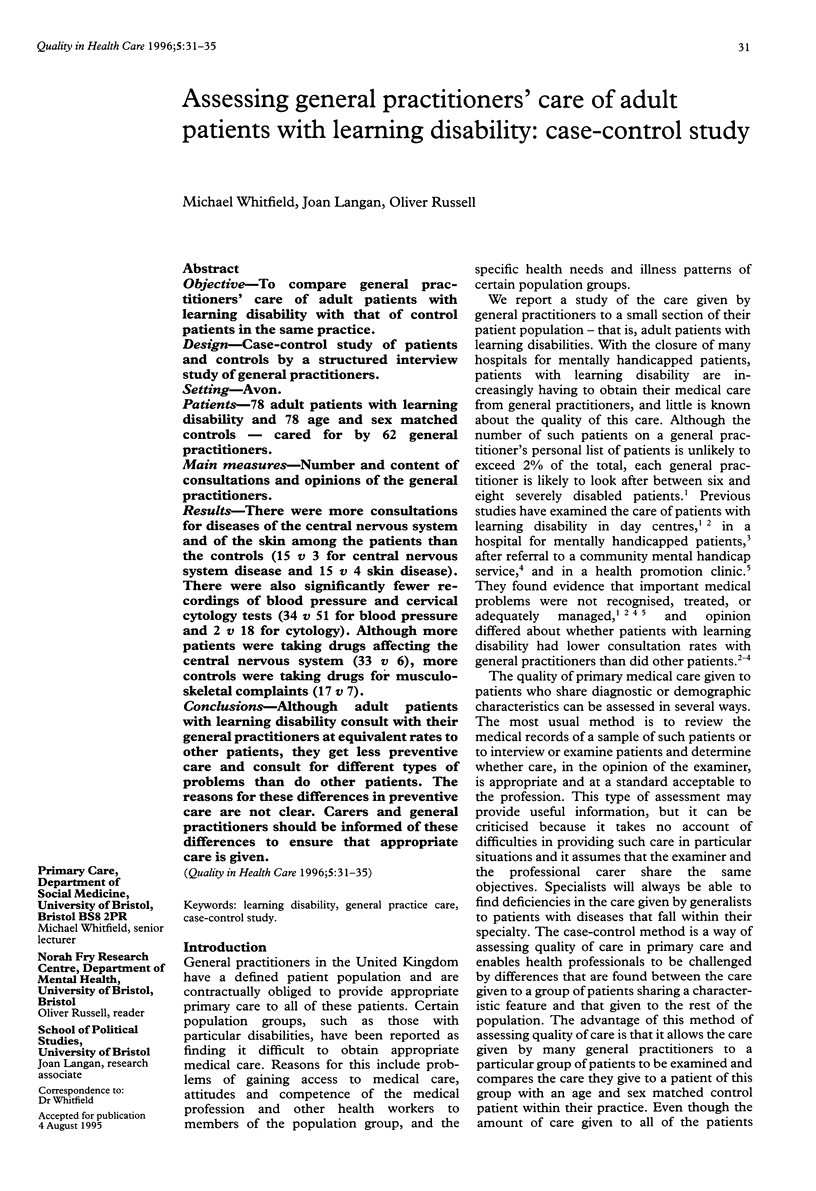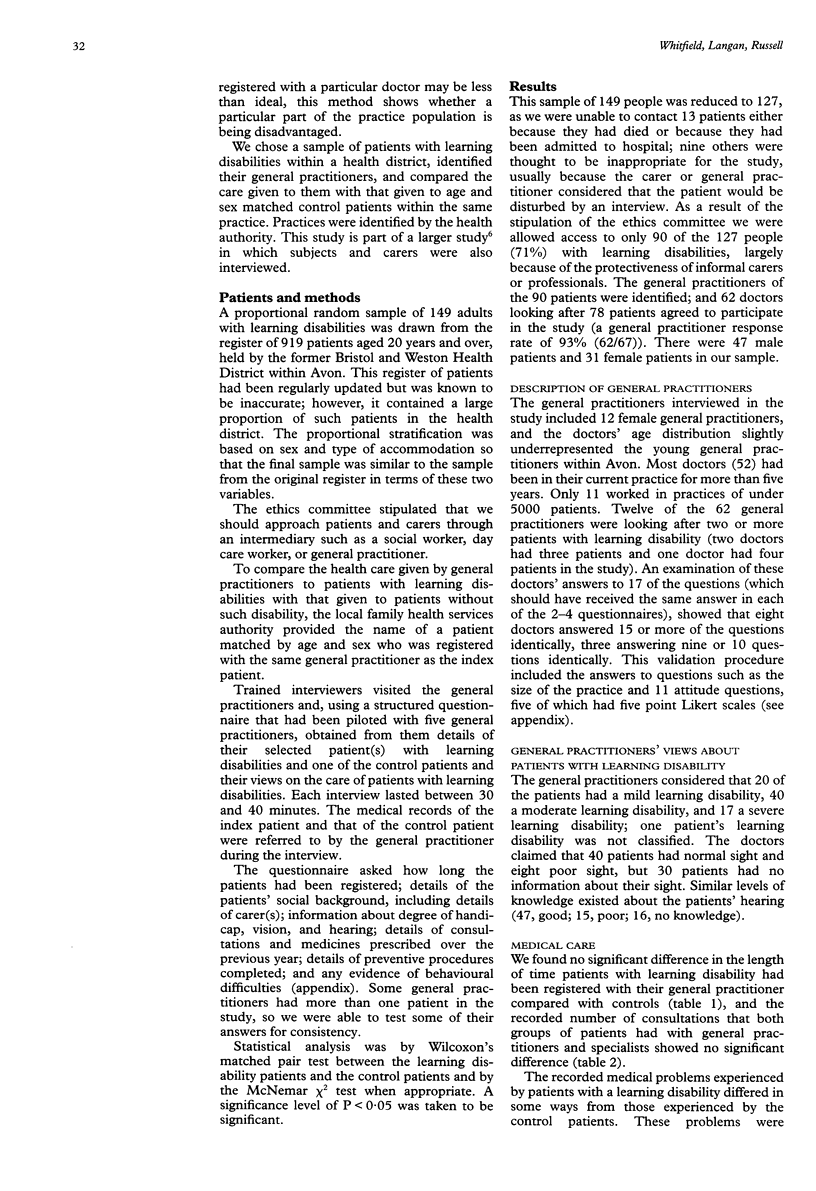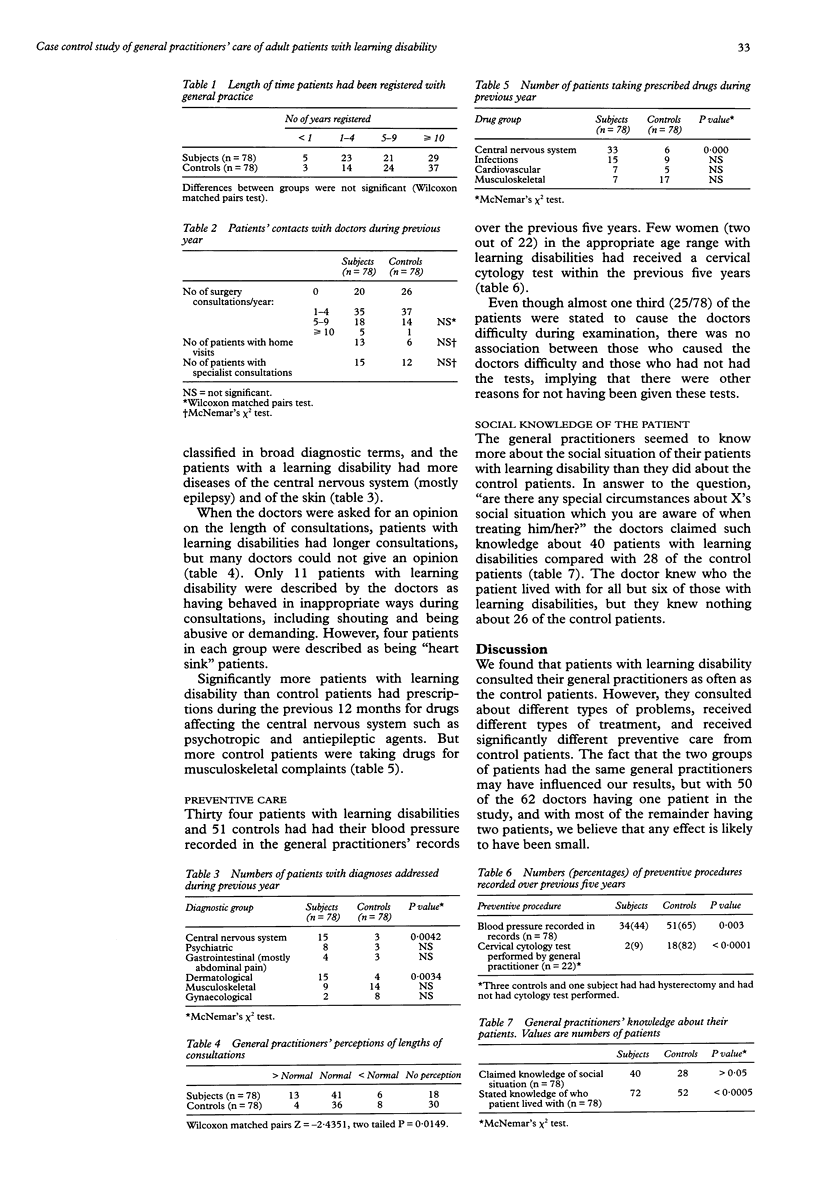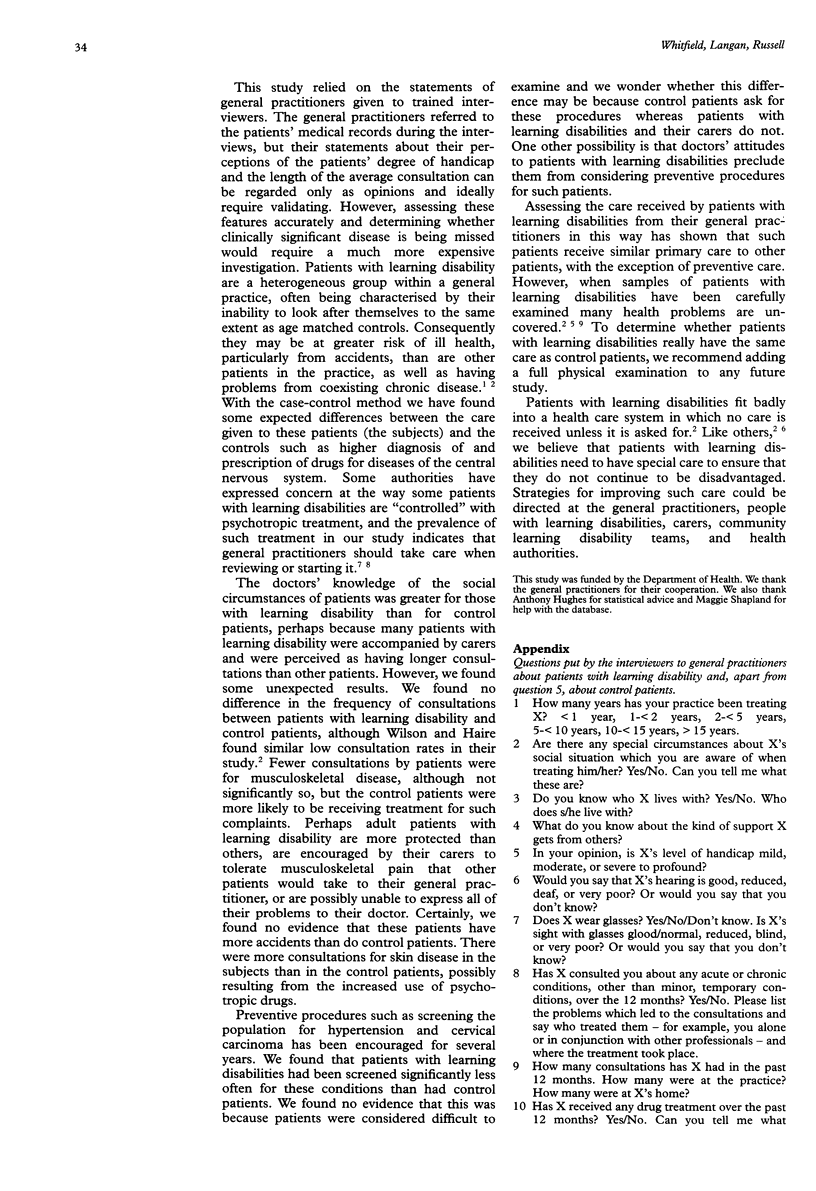Abstract
OBJECTIVE--To compare general practitioners' care of adult patients with learning disability with that of control patients in the same practice. DESIGN--Case-control study of patients and controls by a structured interview study of general practitioners. SETTING--Avon. PATIENTS--78 adult patients with learning disability and 78 age and sex matched controls--cared for by 62 general practitioners. MAIN MEASURES--Number and content of consultations and opinions of the general practitioners. RESULTS--There were more consultations for diseases of the central nervous system and of the skin among the patients than the controls (15 v 3 for central nervous system disease and 15 v 4 skin disease). There were also significantly fewer recordings of blood pressure and cervical cytology tests (34 v 51 for blood pressure and 2 v 18 for cytology). Although more patients were taking drugs affecting the central nervous system (33 v 6), more controls were taking drugs for musculoskeletal complaints (17 v 7). CONCLUSION: Although adult patients with learning disability consult with their general practitioners at equivalent rates to other patients, they get less preventive care and consult for different types of problems than do other patients. The reasons for these differences in preventive care are not clear. Carers and general practitioners should be informed of these differences to ensure that appropriate care is given.
Full text
PDF




Selected References
These references are in PubMed. This may not be the complete list of references from this article.
- Bouras N., Drummond C. R. Health care for people with mental handicap. BMJ. 1991 Feb 9;302(6772):348–348. doi: 10.1136/bmj.302.6772.348-b. [DOI] [PMC free article] [PubMed] [Google Scholar]
- Wilson D. N., Haire A. Health care screening for people with mental handicap living in the community. BMJ. 1990 Dec 15;301(6765):1379–1381. doi: 10.1136/bmj.301.6765.1379. [DOI] [PMC free article] [PubMed] [Google Scholar]


